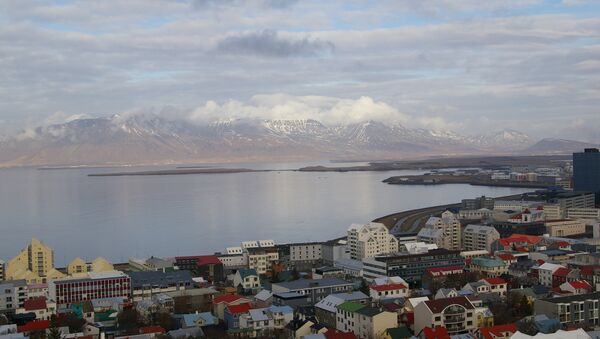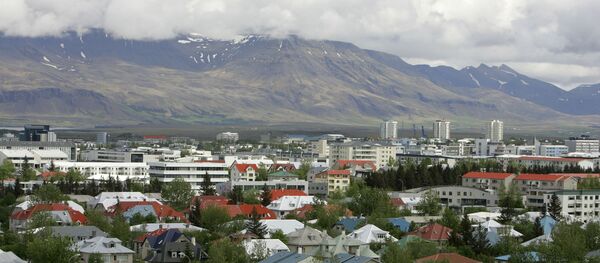Kristian Rouz – Having re-emerged from the 2008 crisis as a robustly expanding economy, Iceland has almost got rid of its capital control rules earlier this year, only to face a new problem: the nation’s investment appeal, stemming from still-high interest rates and expensive national currency reflecting broader growth figures, has attracted inflows of foreign capital too massive to handle. Subsequently, as most of such investors are seeking carry trade revenues, the abundance of capital has also produced a massive threat of disinflation, threatening to capsize the Icelandic longship of economic prosperity.
Iceland’s economy expanded 4.2pc year-on-year in 1Q16, effectively pushing the krona’s value up 8pc over the past five months as international investors have been piling up capital in the fast growth economy seeking higher return on investment (ROI). In its deflation-aversion effort, on 24 August Central Bank of Iceland unexpectedly cut rates by 0.5pc – from 5.75pc to 5.25pc.
"It appears that it will be possible to keep inflation at target over the medium term with a lower interest rate than was previously considered necessary," the central bank said in a statement.
The central bank expects economic growth to accelerate further to 4.9pc this year and above that in 2017. The regulator cited persistently low inflation – at about 1.1pc in July and overall below the target over the past two-and-a-half years as the main reason for the rate cut. The prices index’ weakness is essentially a product of capital inflows, contributing to the advance in the national currency’s FX rate, affecting Iceland’s foreign trade.
“It (inflation) will edge upwards when import prices stop declining and the effects of the currency appreciation subside,” the central bank said. “Inflation will rise more slowly than previously forecast, however, and will not be as high as was previously projected. If the exchange rate continues to rise, and other things being equal, inflation will be lower than is provided for in the baseline forecast.”
The regulator’s cut in deposit rates in the first since November 2014. Meanwhile, the Icelandic government is planning to repel the last remaining capital control measures, which might change the situation with capital flows in and out of the well-performing economy.
Currently, Icelandic residents are banned from buying real estate in other countries and from buying foreign currency. As these measures are removed, the negative effects of the influx of foreign capital might be offset by the outflows of domestic capital, thus easing the upward pressure on the krona.
Monetary policy and capital controls are seen as having hindered inflation over the past years, the regulator noted. Deregulation might help bring the economy back on the market track, however, such a move would entail greater uncertainty over the krona’s FX rate dynamics.
“Whether interest rates will be lowered further or need to be raised again will depend on economic developments and on the success of the capital account liberalization process,” the central bank said.
As terms of international trade improve for Iceland, and global inflation remains subdued, Iceland is likely to retain its currently high investment appeal. Among other nations, facing similar “too-strong currency” problem (related to macro indicators) have been Japan, New Zealand, Sweden, Switzerland and the US.
In June, the Icelandic government has also introduced new rules aimed at curbing speculative currency trade, mainly, higher reserve requirements. Yet, the looming financial liberalization is projected to have greater immediate effects bringing Iceland’s financial system back to normality.




